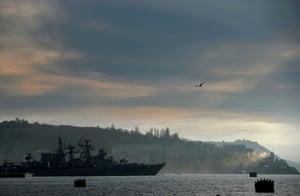The Uneasy Baltics
"It's a great idea ["very high readiness" force of 5,000 ready to deploy in 48 hours] but [if 48 hours advance is all it [NATO offers] it is probably, in terms of the realities, just too late."
Estonian President Toomas Hendrik Ilves
"Putin cannot risk shooting down a British plane."
"He does not want a war with NATO."
Estonian commentator
And nor would NATO particularly look forward to a war with Russia. Vladimir Putin, after all, didn't hesitate to bring up the matter of Russia's nuclear stockpile when he was discussing Moscow's disagreements with Kyiv; how much more thinly veiled a threat than that one? Leaving the Baltic States in an atmosphere of concern over how much NATO countries would be willing to sacrifice to protect their newer members in view of the risk of a nuclear war.
Eurofighter Typhoon’s role in NATO BALTIC AIR POLICING
They are relieved on the other hand, to have NATO's Baltic Air Policing mission in evidence over their skies. Eurofighter jets which make several low passes over Tallinn in Estonia are welcome sights and sounds. They are there to make it evident that NATO is fully cognizant of the fact that it is obliged to look after the sovereignty of any of its members. Should any NATO country be threatened by invasion or conflict, all NATO member states are obligated to come to their defence.
During the days of the Soviet Union stranglehold on Estonia, for example, hundreds of thousands of Russians were encouraged to move to Estonia. The result is that at the present time Estonia is comprised of 24 percent ethnic Russians, many of whom remain the holders of Russian passports. Vladimir Putin has stated more than once how obligated Russia is to the welfare of its people, wherever they happen to live. Speaking darkly of how threatened they are by their countries of residence neglect and other poor treatment.

Like China dispatching Han Chinese to become residents of Tibet to support its insistence that Tibet is Chinese territory, Moscow sees the Baltic States as once again joining "Greater Russia"; the Russian Federation expanding once again, to incorporate shuddering satellites who hoped they could escape the grasp of their giant, militant neighbour. So, once Estonia had its independence and joined the EU and NATO, it sighed with relief.
Since Article 5 of the North Atlantic Treaty assures that each NATO member must defend any other member, subject to an attack. Estonia, Latvia and Lithuania, get especial treatment, however. In 1997 NATO signed an agreement with Russia prohibiting permanent deployment of "substantial combat forces" in the Baltic states. A breach of the commitment could prod Russia to object and intervene.
If the agreed-upon limits to troop deployment in the three Baltic States were to be exceeded, Moscow could be handed a reason to embark on further belligerent adventures, and NATO's hands would be half-tied, in theory. But NATO is nothing if not practical. While NATO limits its presence in Estonia to a temporary deployment of six British jets, 150 American ground troops and joint military exercises, it seeks compensation for its limited presence through "very high readiness".
A force of five thousand soldiers capable of deploying into Baltic states within 48 hours is one solution. Estonia, Latvia and Lithuania announced recently their intention to request that a full brigade of NATO troops be based in the Baltic states. With battalions of 700 to 800 soldiers rotating through the three countries leading to a technical avoidance of a breach of the 1997 agreement with Russia.
The three Baltic states have understandably longer memories of Russian duplicity and imperial penchants to conquer, absorb and control than does Western Europe. They remain uneasy and alert to the potential of Russian saber-rattling and invasion. While Britain has permitted its gas supplier Centrica to sign an agreement for purchase of over 4 billion cubic metres of natural gas yearly from Russia's Gazprom. So much for the meaning and practicality of sanctions as deterrents.
As for the United States, even in the face of ongoing Russian aerial manoeuvres geared to set alarms ringing and sending counter-air-defence units scrambling into the air around Europe, Secretary of State John Kerry met with Vladimir Putin in Sochi last week to discuss Washington-Moscow cooperation in the slight matters of Iran, Syria and the Islamic State.
Labels: Baltic States, Conflict, NATO, Russia, Ukraine

<< Home